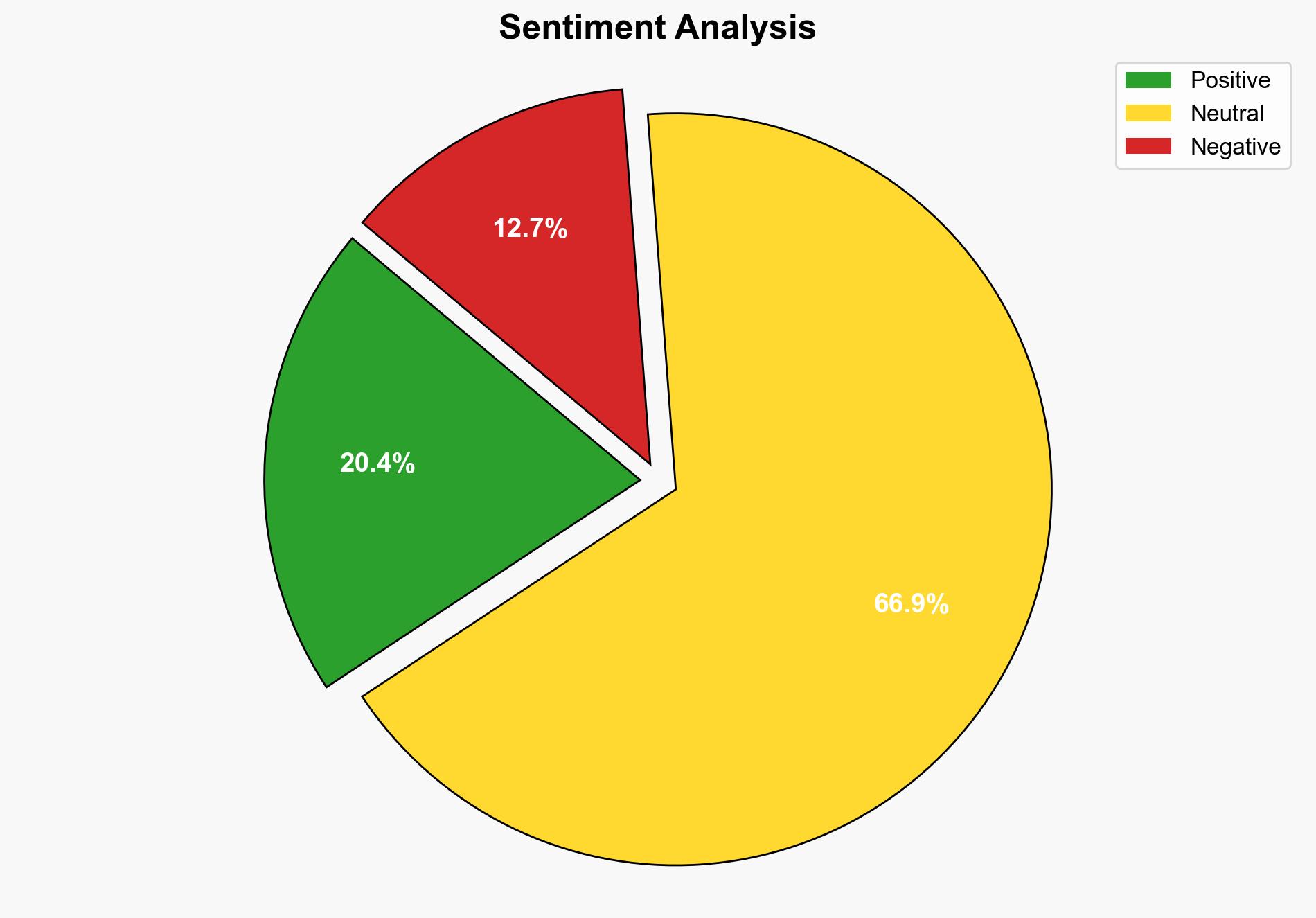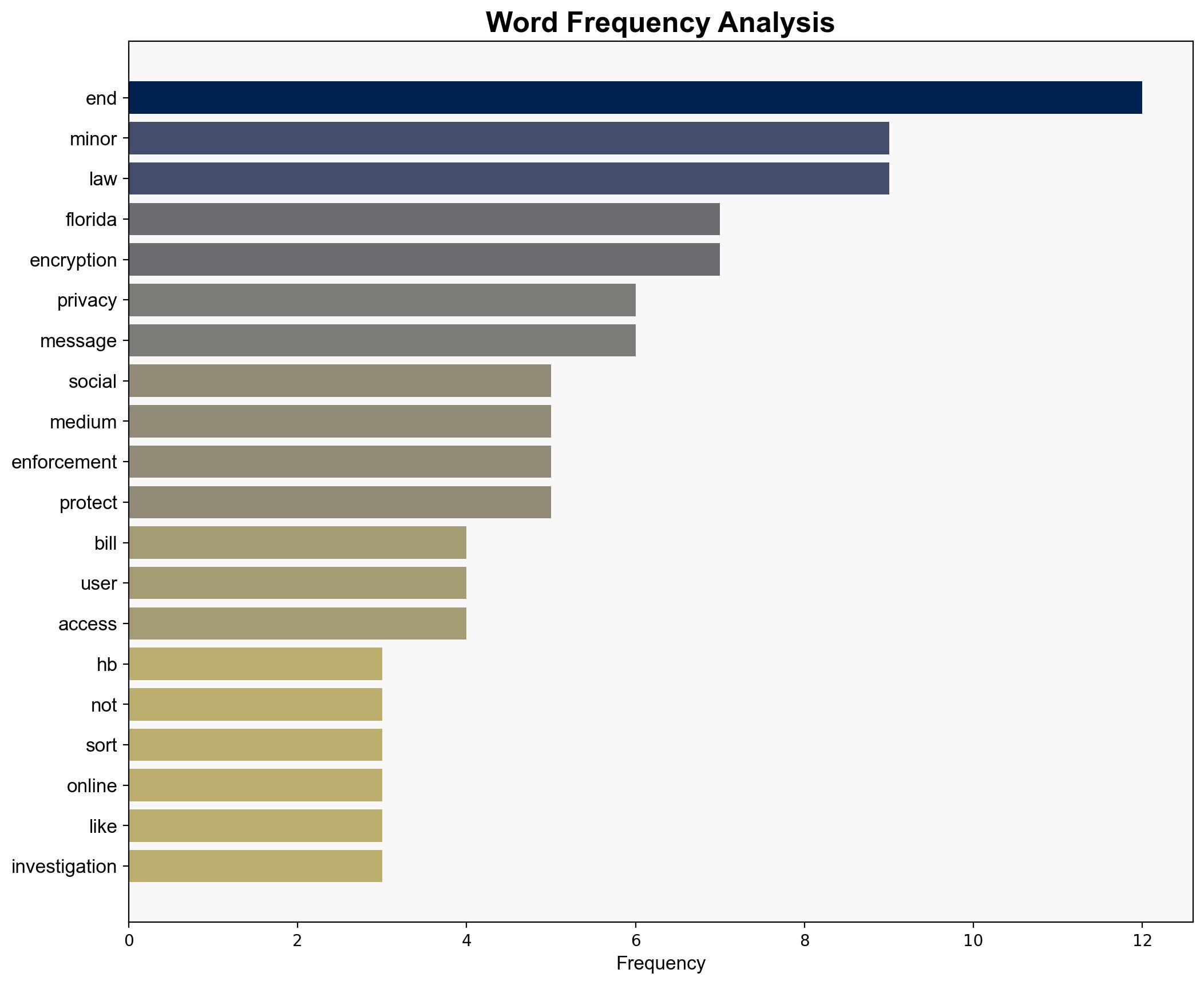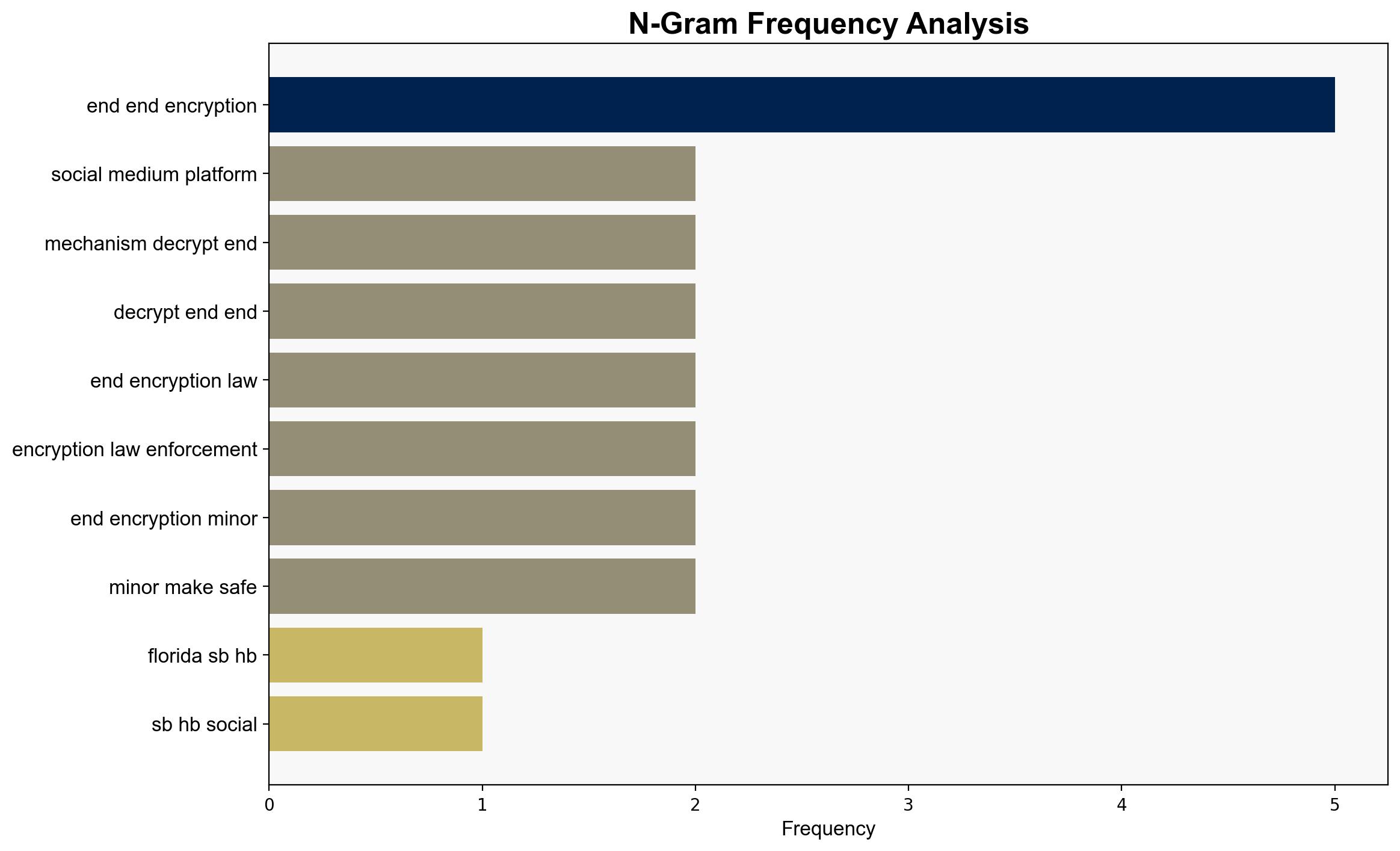Floridas New Social Media Bill Says the Quiet Part Out Loud and Demands an Encryption Backdoor – EFF
Published on: 2025-04-11
Intelligence Report: Florida’s New Social Media Bill and Encryption Backdoor – EFF
1. BLUF (Bottom Line Up Front)
The proposed Florida bill SB 868/HB 743 mandates social media platforms to provide a decryption mechanism for end-to-end encrypted communications when subpoenaed by law enforcement. This requirement poses significant privacy risks, particularly for minors, and could lead to the elimination of encryption features for young users. The bill’s approach is criticized for being both privacy-invasive and technically unfeasible. It mirrors previous legislative attempts in other states, raising concerns about its effectiveness and potential harm to privacy.
2. Detailed Analysis
The following structured analytic techniques have been applied for this analysis:
General Analysis
The bill explicitly demands a backdoor into encrypted communications, a move that could compromise the privacy of all users, not just minors. Encryption is a critical tool for protecting online communications, and weakening it could expose users to increased risks of data breaches and unauthorized access. The bill also restricts minors from using ephemeral messaging features, which could further erode privacy without effectively enhancing security. Historical precedents, such as similar legislative efforts in Nevada, suggest that alternative investigative methods, like user reporting, are more effective than direct access to message contents.
3. Implications and Strategic Risks
The bill presents several strategic risks, including:
- **Privacy Risks**: Weakening encryption could lead to widespread privacy violations, affecting not only minors but all users.
- **Technical Challenges**: Implementing a selective decryption mechanism is technically challenging and may be impossible without compromising overall security.
- **Legal and Economic Impact**: The bill could face legal challenges similar to those encountered by previous legislation, potentially delaying implementation and affecting social media companies’ operations.
- **National Security Concerns**: Weakening encryption could inadvertently aid malicious actors by creating vulnerabilities that could be exploited.
4. Recommendations and Outlook
Recommendations:
- Encourage the development and use of “content oblivious” investigative methods that do not compromise encryption.
- Advocate for privacy-preserving technologies and policies that protect minors without weakening overall security.
- Engage with stakeholders, including technology companies and privacy advocates, to develop balanced regulatory frameworks.
Outlook:
In the best-case scenario, the bill is amended to incorporate privacy-preserving measures, aligning with best practices for digital security. In the worst-case scenario, the bill is enacted as is, leading to significant privacy breaches and technical challenges. The most likely outcome involves continued legal challenges and debates, delaying implementation and prompting further discussions on privacy and security.
5. Key Individuals and Entities
The report references significant legislative efforts and entities involved in the debate over encryption and privacy. Specific individuals are not mentioned by name, but the focus remains on legislative bodies and social media companies.




